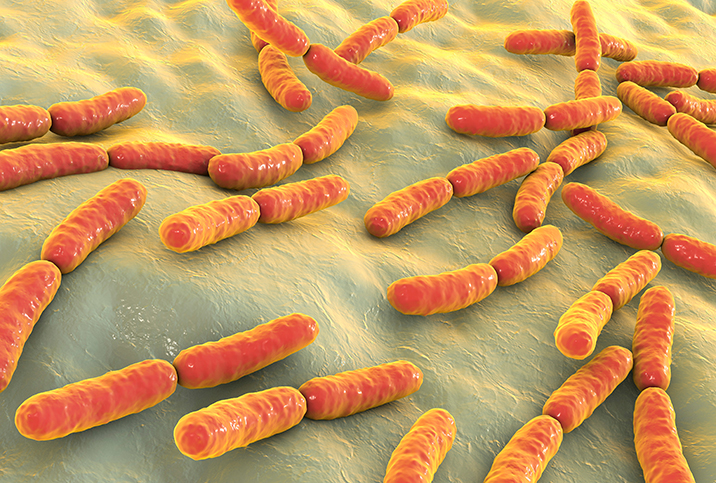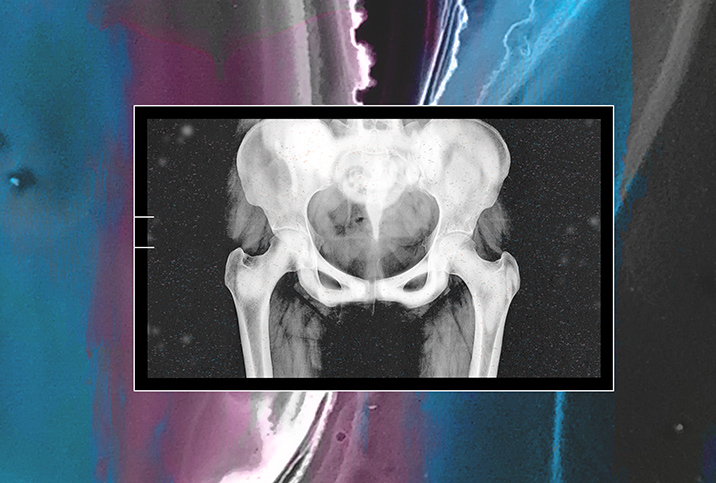Study Finds Link Between Certain Bacteria, Aggressive Prostate Cancer

About 1 in 8 men will be diagnosed with prostate cancer in their lifetime; the disease is the second-most common cancer among men, behind only skin cancer.
Consequently, doctors use a number of markers to determine whether a person has low-risk, medium-risk or high-risk (the most aggressive form) prostate cancer, and treatments follow suit depending on the severity. Aggressive prostate cancer spreads quickly to other parts of the body and increases the risk of death.
While low-risk prostate cancer is often treated with simple monitoring, a high-risk case needs more immediate care. However, determining a patient's risk category can be difficult for doctors, even with advancements in testing.
Researchers at the University of East Anglia in Norwich, England, recently discovered a link between certain types of bacteria found in urine and the aggressive, more deadly form of prostate cancer. Though the findings depict only a correlation between the two at this point—causation is not determined—they could potentially give doctors a leg up in diagnosing high-risk prostate cancer, which would mean quicker treatment and, hopefully, fewer deaths.
"Little is known about what causes some prostate cancers to become more aggressive than others," said Jeremy Clark, M.D., a researcher at UEA, in a press release. "We now have evidence that certain bacteria are involved in this and are part of the puzzle."
The study
The research, led by UEA with contributions from the Quadram Institute and the Norfolk and Norwich University Hospital, among others, used urinary biomarkers to identify aggressive prostate cancer. Material secreted by the prostate gland is found in urine, and according to the study's findings, the "reflux of urine into the prostate is well established," which means researchers have already identified what they call a "prostate-urine loop."
The ultimate goal was to further the research on the biomarkers and clinical data at an initial patient assessment that could more reliably predict prostate cancer risk groups (such as the high-risk group) and identify early disease progression.
During the study, patients were separated into groups, and post-digital rectal exam (post-DRE) urine samples were collected prior to a biopsy for people undergoing prostate cancer assessment. One group of patients was then further categorized by low-risk, medium-risk and high-risk prostate cancer.
The findings
The post-DRE urine samples revealed background DNA staining of bacteria—a process that allows researchers to better examine DNA with the naked eye—in about 50 percent of samples. Researchers analyzed the urine samples, eventually discovering the presence of bacteria in DNA was more common for men with medium-risk and high-risk prostate cancer on the D'Amico scale, a measurement that estimates the risk of prostate cancer recurrence.
The same bacteria were found in advanced prostate cancer, and researchers discovered a statistically significant association between the presence of bacteria and the increased risk of the disease.
Thus, they dived deeper to discover exactly which bacteria were present in these specific samples and found 39 bacterial isolates from the post-DRE urine and eight isolates from prostate cancer secretions. Eventually, those were narrowed down to five bacteria found most commonly in urine and tissue samples from men with aggressive prostate cancer: Anaerococcus, Peptoniphilus, Porphyromonas, Fenollaria and Fusobacterium.
All five are anaerobic, which means they prefer to grow without oxygen present.
"When any of these specific anaerobic bacteria were detected in the patient's samples, it was linked to the presence of higher grades of prostate cancer and more rapid progression to aggressive disease," said Rachel Hurst, M.D., the first author of the study, in the same press release.
"By combining advanced computational analysis of DNA sequence data from the urine of patients with an in-depth understanding of cancer biology and the ability to characterize new species of bacteria, we were able to show an association between the presence of several bacteria and progression to an aggressive form of prostate cancer," said professor John Wain, of the Quadrum Institute and a collaborator on the study.
'The potential to truly revolutionize treatment'
These findings hand doctors another potential weapon in the fight against prostate cancer. More specifically (and perhaps more importantly), doctors could soon be armed with a quicker way to diagnose and treat patients with one of the most common cancers in the world.
"This is an exciting discovery that has the potential to truly revolutionize treatment for men," said Hayley Luxton, M.D., a research impact manager at Prostate Cancer UK. "We currently have no way of reliably identifying aggressive prostate cancers, and this research could help make sure men get the right treatment for them. If the team can demonstrate that these newly identified bacteria can not only predict but actually cause aggressive prostate cancer, for the first time we may actually be able to prevent prostate cancer occurring. This would be a huge breakthrough that could save thousands of lives each year."


















